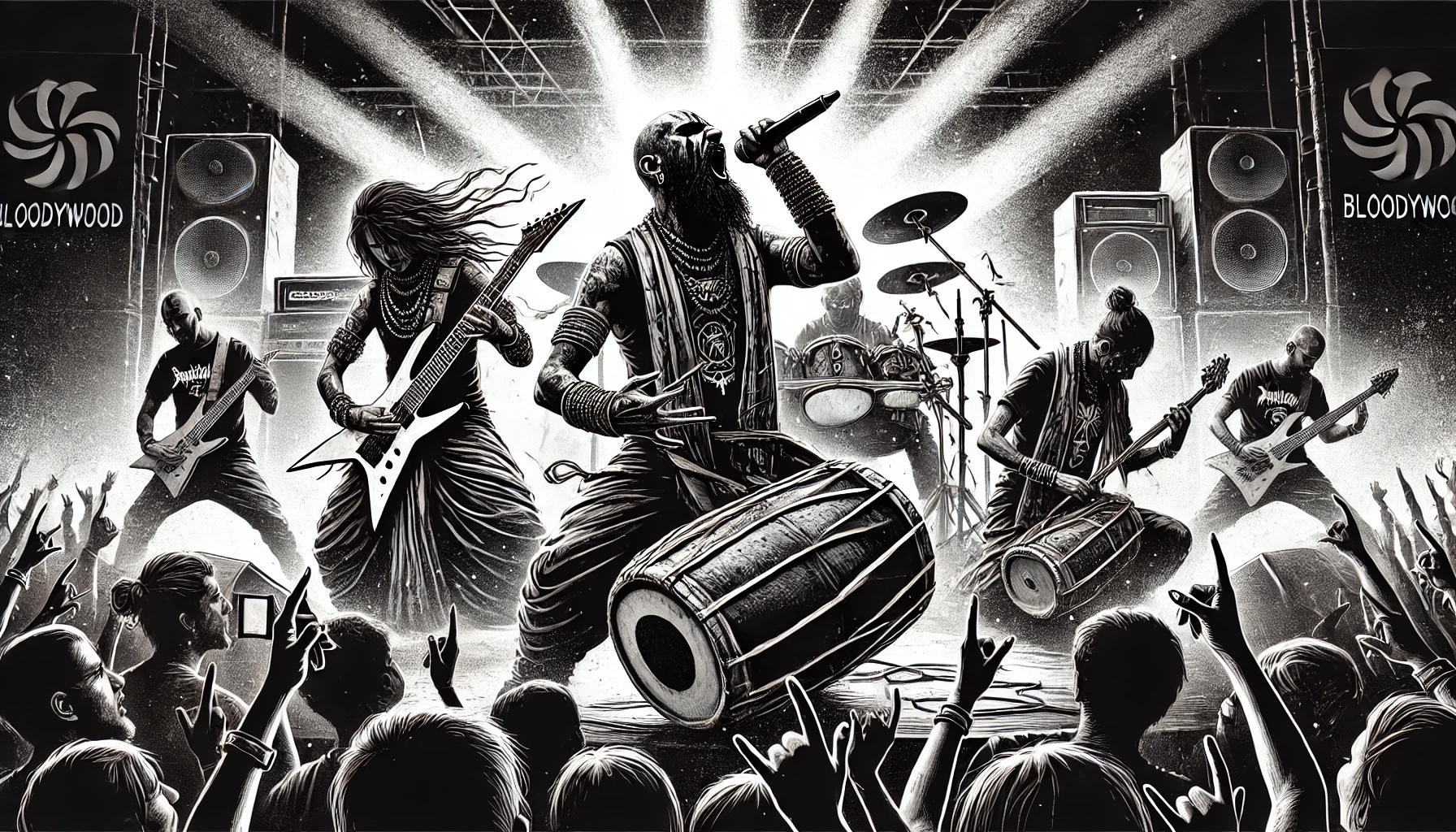As cultures merge and become more alike due to the reaching fingers of technology, isn’t it great that we find heavy metal bands worldwide blending traditional with modern styles into their music?
Oh, by the way, welcome to Swanalong, a space where we delve into the nuances of our changing world. We explore the connections between culture, technology, and art and how they shape the way we live, think, and communicate.
The Global Connection: Are We Losing Uniqueness?
The world is becoming more connected, and a curious transformation is occurring as we adopt the same technologies and communicate on the same platforms—WhatsApp, Facebook, Instagram— patterns of bland, zombie-like sameness start to emerge. The lines blur. Travel to any corner of the world, and you’ll see people with heads bowed, staring at the exact phones you can find anywhere using the same apps and social media platforms. It’s easy to wonder: Are we slowly losing what makes each place on the earth unique?
There is a glimmer of hope, and it might not be to the liking of Simon and Garfunkel fans. A resistance to this sameness comes from the most unlikely of places: heavy metal. Specifically, metal bands that don’t just blast the typical heavy riffs but weave their cultural heritage into the music—creating something that stands as a reminder that even in a globalised world, culture isn’t dead. Metal might be leading the charge in retaining tradition while embracing the future.
Bloodywood: Bloody Good
Enter Bloodywood. Bloodywood isn’t just another metal band; they’re an Indian folk-metal phenomenon, unapologetically blending their roots with the raw power of metal. It’s music that’s loud, but it’s also thoughtful. Bloodywood’s members, Karan Katiyar (guitarist), Jayant Bhadula (vocalist), and Raoul Kerr (rapper), are doing more than just making noise—they’re sending a message. Their songs tackle mental health, oppression, and injustice, but through the lens of their Indian heritage, traditional instruments like the dhol and flute add layers of meaning that push the music beyond typical metal fare. Listen to their song Dana Dan—it’s a powerful tune about fighting back against sexual violence, and the band uses it to raise awareness and demand justice for such crimes.
Guitarist Karan Katiyar is the mastermind behind Bloodywood’s fusion of Indian folk and metal. On his eight-string Ibanez guitar, he melds the deep history of Indian music with the contemporary edge of metal. Meanwhile, Jayant Bhadula’s voice howls and growls like a man possessed, while Raoul Kerr offers rap verses that cut through the tracks with socially conscious fire, creating a culturally rich and globally relevant sound.
Their latest single, Nu Delhi, showcases exactly what I’m talking about. It’s got the kind of buildup that makes you feel like something’s about to blow the roof off. And when the drop comes, it’s not just heavy—it’s infused with the pulse of India. You can check it out on YouTube—an absolute killer of a track. The traditional instruments they weave in will make you sit up and take notice.
And if you want to see them live, their performance at the Fuji Rock Festival 2022 is a must-watch. You can feel and see their music’s energy, connection, and depth on full display. Bloodywood is more than a band—they’re a movement.
The Bigger Picture: Music in a Monocultural World
Bloodywood’s blending of tradition with modernity is exactly what the future needs. As the world becomes more globally connected, we tend to drift toward a monoculture—where everyone uses the same platforms, buys the same products, and consumes the same media. While there’s nothing inherently wrong with this—it’s natural when communication becomes seamless—we lose something vital when we let cultural identity fade into the background.
That’s where music, specifically metal, comes in. While global pop and mainstream music often sound eerily similar no matter where you go, metal is where cultures collide in the best possible way. Look at what’s happening around the world:
- The Hu (Mongolia) – Mongolian throat singing meets metal. It’s as raw and primal as you’d expect, but it’s also undeniably Mongolian, maintaining a deep connection to their cultural roots while roaring forward into something new.
- Alien Weaponry (New Zealand) – Thrash metal combined with Māori chants. These guys are young, but their sound carries the weight of history and the spirit of resistance. They bring the haka into the world of heavy metal, and it’s nothing short of electrifying.
- Melechesh (Israel/Netherlands) – Fusing Middle Eastern scales and mythology with black metal, Melechesh’s sound is as dark and mystical as the ancient cultures they draw from. Their music feels like a journey through time and space.
- Arka’n (Togo, Africa) – These guys mix tribal rhythms with the intensity of metal in a way that feels both ancient and new. West African metal might sound niche, but Arka’n makes it feel universal.
- Shepherds Reign (Pacific) – Enjoy more Pacific Metal with this band.
More Global Metal Bands Worth Checking Out
- Trivax (Iran) – Iranian black metal band bringing raw energy and powerful social commentary.
- Tabahi (Pakistan) – Pakistani thrash metal at its finest.
- Averse (Bangladesh) – A track against oppression, discrimination, and domination from this influential band.
- Uuhai (Mongolia) – Another standout Mongolian metal act.
- JÖRMUNGANDR (Volfgang Twins, Norway) – Viking metal at its finest.
- Septicflesh (Greece) – Check out “The Vampire from Nazareth” for some Greek symphonic death metal.
- Apocalypse Orchestra (Medieval) – They play medieval metal with bagpipes, adding something unique.
Why This Matters
As technology and globalization create more commonalities between us, there’s a temptation to flatten everything into one shared experience. But preserving what makes us unique becomes even more important as we become more interconnected.
Music like Bloodywood’s and bands like The Hu or Alien Weaponry represent a resistance to cultural homogenisation. They show us that even as the world becomes more alike, there’s still room to celebrate our differences—and that these differences can thrive within a global context. The key is to blend tradition with progress—to honour where we come from while embracing where we’re going.
For me, that’s what heavy metal does so well. It’s music that doesn’t just shout into the void; it’s music that says something. It’s raw, honest, and a medium where cultures can merge without losing themselves in the process. Metal isn’t noise pollution—it’s a cultural amplifier, a celebration of difference wrapped in a shared experience.
Metal isn’t Noise Pollution—it’s the Sound of Life, Culture, and the Future. Keep Rocking, and keep culture alive—unity in diversity through music.

